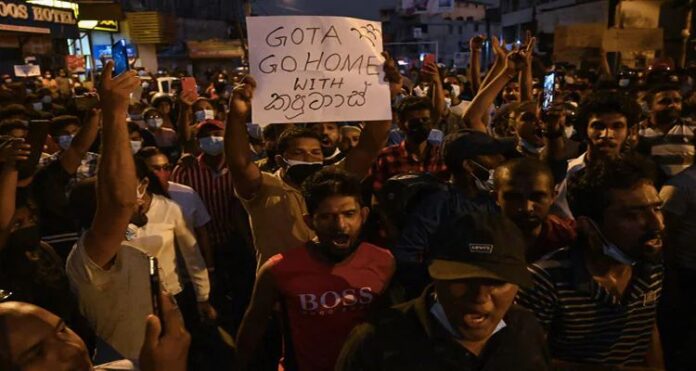| Translate This News In |
|---|
The crippling economic crisis in Sri Lanka threatens starvation across the island nation of 22 million people, while acute shortages and blackouts worsen, the speaker of parliament warned on Wednesday. Scarce food and fuel supplies, combined with record inflation and blackouts, have caused widespread misery in the country’s most heartbreaking downturn since its independence from Britain in 1948. Crowds have attempted to storm the homes of several government figures, including President Gotabaya Rajapaksa, and there have been large demonstrations elsewhere. Mahinda Yapa Abeywardana warned legislators that more difficulties were on the way. “We are told that this is the worst crisis in history, but I believe it is only the beginning,” Abeywardana said at the start of a multiple debate on the country’s worsening economic woes. Food, gas, and electricity shortages are expected to worsen. Food shortages and starvation will be severe.” Security forces used tear gas, water cannons, and rubber bullets to disperse protests, but a state of emergency declared by the president last week to quell demonstrations was lifted at midnight.
More than 60 people had been charged in connection with the unrest, and many of them have claimed to have been tortured in police custody.
Legislators pushed for a debate on the emergency declaration during this week’s session of parliament, where the government lost its majority due to the defection of political allies, several of whom have since called for Rajapaksa’s resignation.
After nearly the entire cabinet resigned late Sunday, opposition parties had already rejected the president’s offer to form a unity administration.
However, there has been no clear indication that opposition legislators will attempt a no-confidence motion to destabilise the Rajapaksa administration.
Pre-warnings
A critical foreign currency shortage has made it difficult for Sri Lanka to import essential goods, while the pandemic has jeopardised vital revenue from tourism and remittances.
Rating agencies have warned of a possible default on Sri Lanka’s $51 billion foreign debt, and the government is unable to raise additional commercial loans due to credit downgrades.
Economists believe that government mismanagement, years of accumulated debt, and ill-advised tax cuts have exacerbated the crisis.


















